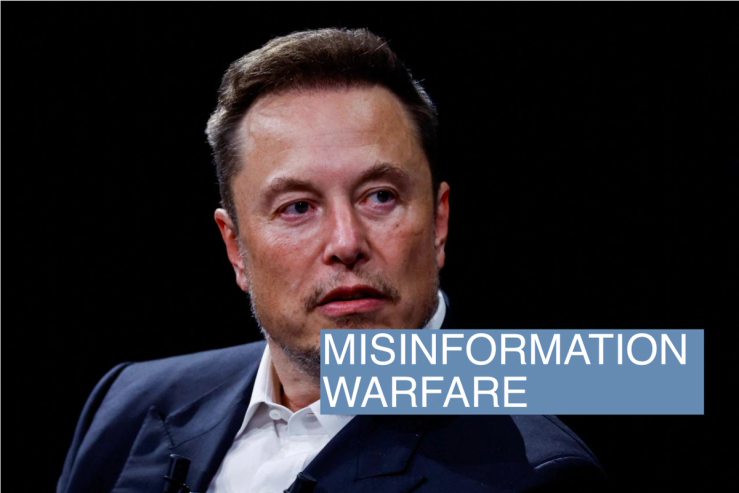The News
Almost two years ago, social media platforms struggled to handle the barrage of misinformation that flooded the internet after Russia invaded Ukraine.
A lot has changed online since then — Twitter is now X under Elon Musk’s ownership, and a number of new platforms are trying to take its place — but the early days of the Israel-Hamas conflict has shown that these platforms largely haven’t learned their lessons from the Russia-Ukraine war. Instead, the social media landscape has deteriorated significantly, experts say.
SIGNALS
Analysts generally agree that X, formerly Twitter, has been the worst platform when it comes to misinformation related to the Israel-Hamas conflict. Under Musk’s leadership, accounts that pay to be verified can be eligible for payments from X if their posts go viral. Musk also laid off “large swaths” of the company’s content moderation and policy teams, CNN reported, allowing fake videos to remain and spread across on the platform.
Professional fact-checkers are seeing some of the same types of misinformation from the early days of Russia’s invasion of Ukraine. In the first two months of the Ukraine war, “there was a deluge of misinformation online and plenty of old videos” from past wars, BBC journalist Shayan Sardarizadeh told the Reuters Institute. Sardarizadeh, who focuses on disinformation, said he’s now come across several old videos that purport to be from Israel and Gaza, including some that are edited to appear like authentic BBC reports.
As X lost its standing as a go-to source for reliable, real-time news, it put the spotlight on Threads, Meta’s Twitter competitor that launched earlier this year. If Threads made news a central offering it would give the platform an “enduring, defensible, existential purpose,” Casey Newton wrote in his Platformer newsletter. But the head of Threads, Adam Mosseri, has downplayed the role of news on the platform, saying this week that Threads won’t “amplify” news. “After years of over-promising the industry, Meta has been gradually divorcing itself from the news business,” Newton wrote.
This is the first major international conflict since the European Union’s new rules on online content moderation for large platforms went into effect. The EU warned X, Meta, and TikTok in letters this week that illegal content and disinformation was being spread on their platforms and could lead to hetfy penalties. But the letters worried some policy experts, Bloomberg’s Dave Lee wrote, over the lack of details as well as concerns that EU officials could be using the situation for personal political gain. Some digital rights groups had worried that in the long run, the EU’s new rules could “lead to social networks over-moderating because of regulatory fears,” Lee wrote.



